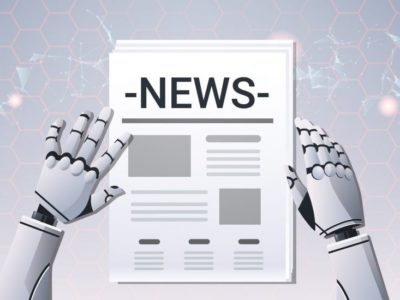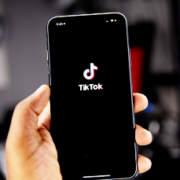By Engr. Gbolahan M.A. Alabi-Isama MS
Founder/CEO at Supercomafrica
Introduction
In a world that thrives on innovation and technology, Nigeria’s journey toward digital transformation is both exciting and challenging. The government’s ambitious project to digitize its ministries, departments, and agencies’ (MDAs) operating model comes with high hopes for efficiency, transparency, and profitability.
RELATED: EXECUTIVE NOTES – Developing Nigeria’s Digital Economy: The Journey So Far
However, numerous complexities, such as lacking infrastructure, digital literacy, and cultural aversion to change, loom large over this transformation. In this blog, we delve into the issue at hand, exploring whether Nigeria’s digitalization efforts can truly lead the nation to a brighter, less somber future.
Dreaming Big: Nigeria’s Digital Transformation Adventure
The Federal Government’s significant investment of N152 billion in digitization in 2021 and the goal of making all government activities paperless by 2030 illustrate the seriousness of this endeavor. The vision to drive an ecosystem where public servants can exchange knowledge and access the right tools to create sustainable solutions is commendable. Embracing digital technology is indeed the key to a brighter future for Nigeria.
Digital Roadblocks: Challenges We Must Conquer
However, we cannot ignore the challenges ahead. The lack of adequate connectivity infrastructure to handle the vast population of 137 million people poses a major hurdle. Moreover, the high rate of illiteracy and digital illiteracy may hinder the adoption of new technologies and e-learning platforms. To top it off, the deeply ingrained management culture, structure, and discipline need to be adapted to accommodate the digital era effectively.
Our Way or the Highway? Choosing the Right Digital Approach
The success of this digitalization project lies in whether it will be a patched work of siloed systems or a comprehensive system that truly offers e-governance solutions. To avoid the pitfalls of outdated practices and mindsets, there must be a coherent definition and implementation of the overarching operating model. Clearly defined top-level objectives with transparent communication to all stakeholders, including the public, are essential for the successful adoption of these new processes.
Local Heroes: Nigerian Scholars Bridging the Digital Divide
While seeking knowledge transfer from foreign sources, it’s crucial to consider how to bridge the digital divide between public servants and citizens. Nigerian scholars could play a pivotal role in providing training on ten essential subjects that can help bridge this divide:
1. Digital Literacy and Skills Training
2. Cybersecurity and Data Protection
3. E-Governance and Citizen Services
4. Innovation and Creativity
5. Digital Project Management
6. ICT Infrastructure and Connectivity
7. Change Management and Cultural Adaptation
8. Digital Ethics and Governance
9. AI and Emerging Technologies
10. Building a Digital Mindset
Leading the Way: Mastering the Digital Leadership Triad
Becoming a digital transformation leader requires a mastery of the Leadership Triad, comprising three essential areas:
1. Technological Savvy: Understanding and embracing new technologies, keeping up with emerging trends, and integrating them effectively into the organization.
2. Visionary Leadership: Developing a clear vision for digital transformation and inspiring others to align with this vision, fostering a culture of innovation and continuous improvement.
3. Change Management: Navigating the cultural and organizational changes associated with digitalization, empowering employees to embrace the transformation, and guiding them through the process.
Embrace the Journey: Nigeria’s Digital Transformation Quest
Nigeria’s digital transformation journey is both promising and demanding. To achieve a brighter future, the country must tackle its complications head-on, develop a comprehensive digital system, and invest in empowering its civil servants and citizens through education and training. By mastering the Leadership Triad, Nigerian leaders can inspire and lead their workforce to navigate this digitalization path successfully. Embracing change with enthusiasm and adaptability, the nation can truly achieve its aspirations for a more efficient, transparent, and prosperous digital economy. Together, we can embark on this transformative journey, making Nigeria a shining example in the global digital landscape.
Rise to the Challenge: Becoming a Digital Trailblazer
As Nigeria continues on its digital transformation journey, it must embrace this opportunity to not only catch up with the digital advancements of other nations but also become a trailblazer in its own right. The challenges ahead are not insurmountable, but they do require a collective effort and a positive attitude toward change.
All Hands on Deck: Teaming Up for Digital Success
The Nigerian government, MDAs, and civil servants must collaborate, communicate, and continuously improve throughout this process. Openness to feedback, learning from mistakes, and celebrating successes are vital components in the pursuit of a successful digital transformation.
Power to the People: Empowering Nigeria’s Digital Talents
Moreover, the involvement of Nigerian scholars in bridging the digital divide is of paramount importance. By nurturing and empowering local talents, Nigeria can build a homegrown pool of experts to drive the digitalization process forward. Local knowledge and insights into Nigerian society and culture will undoubtedly play a pivotal role in tailoring digital solutions that suit the nation’s unique needs.
Futuristic Dreams: Investing in Nigeria’s Digital Destiny
A transition to a high-performance, digitally adept Civil Service may not happen overnight, but it is an investment in the future of Nigeria. By mastering the Leadership Triad and demonstrating technological savvy, visionary leadership, and effective change management, digital transformation leaders can command respect and inspire their peers to embrace this journey wholeheartedly.
In conclusion, Nigeria’s quest for a more efficient, transparent, and prosperous digital economy is not merely a dream; it is a tangible vision waiting to be realized. As the nation navigates the complexities and challenges of digitalization, let us all remember that a positive attitude, continuous learning, and a willingness to innovate are the key ingredients that will illuminate the path to a brighter, less somber future.
Together, we can unlock the full potential of Nigeria’s digital transformation, forging a nation that embraces technology, fosters inclusive growth, and becomes a shining beacon of success on the global stage. The journey may be challenging, but with determination and a positive mindset, Nigeria can truly become a digital powerhouse, driving progress and prosperity for generations to come.
Let us embark on this transformative journey with enthusiasm and unwavering optimism, for the future of Nigeria lies in the embrace of a digital age filled with boundless possibilities.
FAQ: Embracing a Digital Future — Navigating Nigeria’s Path to Success
Q1: What is the main goal of Nigeria’s digital transformation project?
A1: The main goal of Nigeria’s digital transformation project is to drive greater efficiency, transparency, and profitability in the country’s ministries, departments, and agencies (MDAs) by adopting digital technologies and creating a sustainable ecosystem for public servants.
Q2: How much has the Nigerian government spent so far in digitization, and what is the target timeline for going paperless?
A2: The Nigerian government has made a significant investment of N152 billion in digitization in 2021. The ambitious target is to make all government activities paperless by the year 2030.
Q3: What are the major challenges facing Nigeria’s digital transformation journey?
A3: Nigeria faces several challenges, including inadequate connectivity infrastructure to cater to its vast population of 137 million people. Additionally, high rates of illiteracy and digital illiteracy may hinder the smooth adoption of new technologies and e-learning platforms. Cultural aversion to change and adapting management practices to suit the digital era are also significant hurdles.
Q4: How will Nigerian scholars contribute to bridging the digital divide between public servants and citizens?
A4: Nigerian scholars will play a vital role in providing training on essential subjects like digital literacy, cybersecurity, e-governance, innovation, AI, and more. By imparting knowledge and skills, they will help bridge the gap and empower public servants and citizens to embrace digital technologies effectively.
Q5: What is the Leadership Triad, and why is it crucial for successful digital transformation?
A5: The Leadership Triad consists of three essential areas: technological savvy, visionary leadership, and change management. It is crucial because these traits empower digital transformation leaders to understand and integrate new technologies, inspire others with a clear vision, and navigate cultural and organizational changes during the transition.
Q6: How can Nigeria become a trailblazer in the digital landscape?
A6: Nigeria can become a trailblazer by not only catching up with other nations in digital advancements but also by nurturing local talents and insights. By embracing a positive attitude toward change and continuous learning, Nigeria can tailor digital solutions to its unique needs, making it a shining beacon of digital success.
Q7: How can I stay updated on the “Embracing a Digital Future” campaign for high-performance MDAs?
A7: To stay updated on the campaign’s progress and ways to take action, you can sign up for up-to-date information through the provided link. Stay informed about Nigeria’s exciting digital transformation journey!
Q8: Where can I find more information and engage in discussions about Nigeria’s digital transformation journey?
A8: You can follow the hashtag #DigitalNigeria on social media platforms to find more information, engage in discussions, and connect with others interested in Nigeria’s digital future. Join the conversation and be a part of this transformative journey!

































